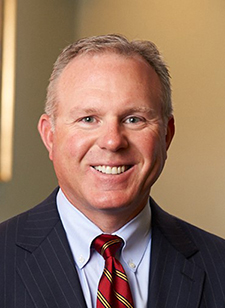Planned giving is booming as America enters monumental ‘generational wealth transfer’ era

Wealth management professionals, attorneys and financial planners are busy. Maybe busier than they have ever been. But it’s with good reason.
Baby boomers (adults born between 1946 and 1964) are retiring at a rapid rate and are teaming with financial professionals to plan for the proper transfer of their assets to philanthropic causes and loved ones in the Generation X/Millennial/Generation Z age groups. What makes this situation a “generational wealth transfer” period? Approximately $53 trillion in assets.

"More than 10,000 baby boomers are retiring daily,” said Winfield Smathers, founder and CEO -Shorebridge Wealth Management and Branch Manager, RJFS. “The baby boomer generation is undoubtedly the wealthiest group of Americans who, unlike previous generations who were primarily pensioners or had no safety net, were forced to embrace stock ownership in 401K plans, and were fortunate to be working and accumulating wealth during the greatest stock market and real estate growth periods in history.”
Smathers also mentioned the tailwinds of long periods of very low interest rates, the peace dividend (reallocating defense spending during the 1980s) and the incredible, productivity-enhancing innovations of the computer and internet evolutions that have propelled baby boomers’ bottom lines to even higher heights.
Unfortunately, that combination of fortuitous events was not enjoyed by the boomers’ children.
“Despite the boomers living longer, thus having to spend a lot of their wealth on themselves (in the form of health-related expenses), there will be an important windfall passed to Gen Xers and Millennials, hopefully allowing them to catch up their own wealth building after a slow start,” Smathers said. “These two generations missed most of the rapid climb in stock market performance in the ‘80s and ‘90s only to launch careers in the lost years of the early 2000s. Accumulated debt and sustained periods of higher costs have hindered their ability to accumulate wealth at the pace the boomers enjoyed.”
While average families will also need to grapple with the rising costs of living, including the medical expenses that come with greater longevity, Reed Natali, managing director of Shorebridge Wealth Management and Financial Advisor, RJFS, said that the boomers’ role in the extended care of their own parents can be a positive force in their preparation.

“The difficulty and stress managing these situations has left baby boomers more aware of the importance of having an estate plan, and the importance of including beneficiaries and other interested parties earlier in the process,” Natali said. “There is less stigma around money conversations, and in my experience, baby boomers are eager to discuss these matters and formulate a plan for their family.”
Smathers agreed and outlined the positives that can come with the proper planning from experts.
“We advise boomers to plan ahead and to engage a highly capable team of advisers – legal, tax, charitable and financial – to help them identify their priorities then craft the strategies to help maximize the effectiveness of this wealth transfer opportunity.
“Ultimately, the massive wealth transfer expected in the next twenty years will allow younger generations to retire with dignity and to strengthen our system of private support for charity. Fortunately, there are community organizations like The Pittsburgh Foundation that make this desire for families to direct wealth to charity simpler to execute and administer while offering control and continued involvement from their kids.”
What would happen to your assets if you do not have a plan in place?
"If someone dies without a will, then the distribution of their estate will be governed by their state’s intestacy laws. So critical decisions about one’s family and assets are left out of their control and instead determined by their state’s legal framework. We advise that clients take matters into their own hands and create a plan for the family they love and the assets they worked so hard to accumulate."
--Reed Natali, managing director of Shorebridge Wealth Management and Financial Advisor, RJFS
Nonprofits can share similar optimism and it is something that Natali reminds people of often while also helping to protect their wealth from taxation.
“We challenge individuals to think about the value and potential of their money to make a positive difference. If money is unlikely to be utilized during their lifetime, we contemplate the reality it will one day be spent by someone else. We encourage them to consider people and causes they care deeply about, and the opportunity they have to make an incredible impact and create a lasting legacy.”
If someone dies without a will, then the distribution of their estate will be governed by their state’s intestacy laws. So critical decisions about one’s family and assets are left out of their control and instead determined by their state’s legal framework. We suggest people take matters into their own hands and create a plan for the family they love and assets they worked so hard to accumulate.
Learn more about planned giving on our Will Week page.
Shorebridge Wealth Management – 600 Waterfront Drive, Suite 125, Pittsburgh, PA 15222. Securities offered through Raymond James Financial Services, Inc., member FINRA/SIPC. Investment advisory services are offered through Raymond James Financial Services Advisors, Inc. Shorebridge Wealth Management is not a registered broker/dealer and is independent of Raymond James Financial Services. Any opinions are those of Shorebridge Wealth Management and not necessarily those of Raymond James. Investing involves risk and you may incur a profit or loss regardless of strategy selected. Prior to making an investment decision, please consult with your financial advisor about your individual situation. Raymond James and its advisors do not offer tax or legal advice. You should discuss any tax or legal matters with the appropriate professional.




